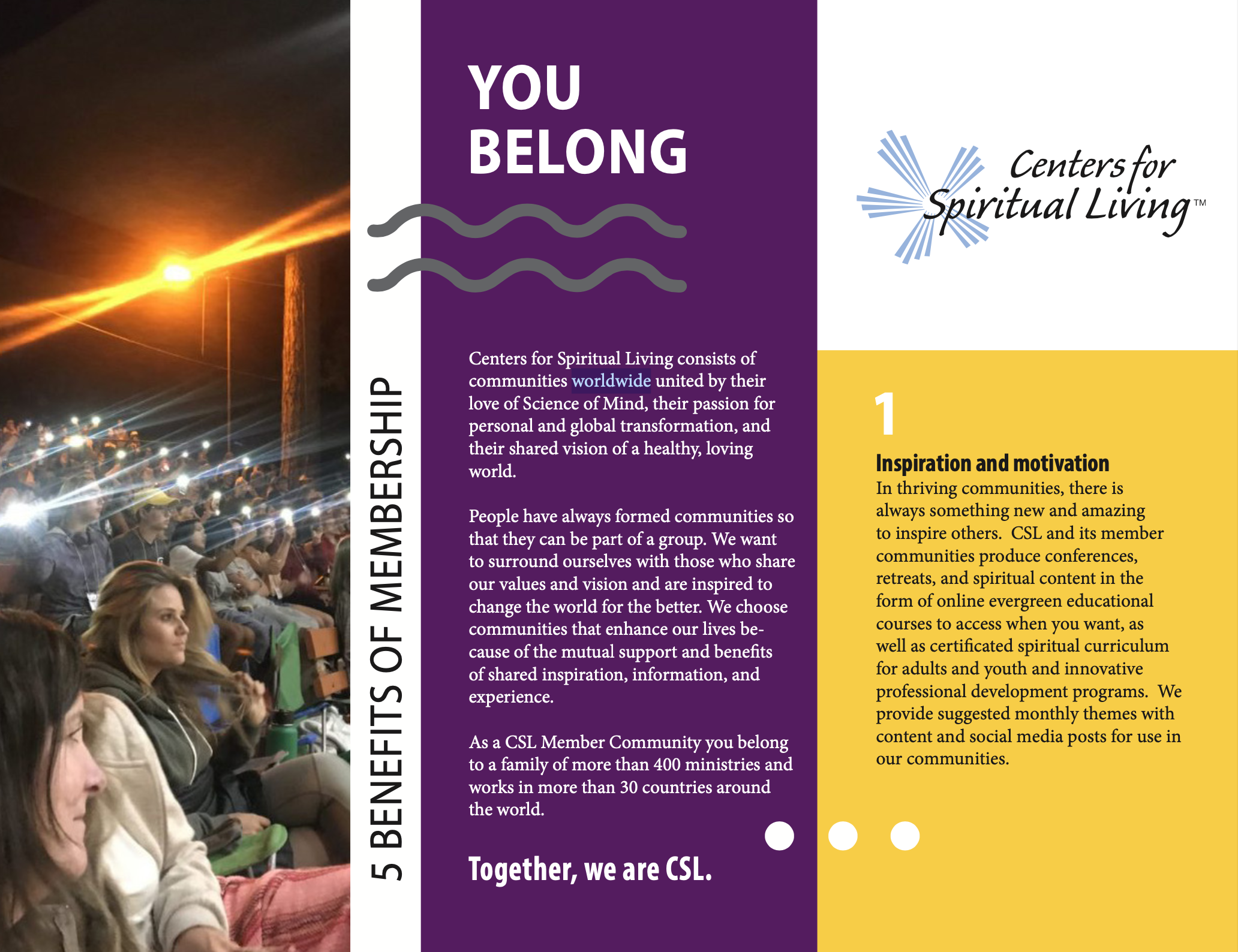In contemporary society, the concept of community has garnered renewed attention, particularly within spiritual and philosophical discourses. Central to many of these discussions is the idea that belonging extends beyond mere social interaction; it encapsulates a profound spiritual power that shapes one’s identity, purpose, and sense of fulfillment. The Bahá’í teachings provide a compelling framework for understanding the transformative potential of belonging to a spiritual community. This article examines the multifaceted nature of community within Bahá’í thought, elucidating its significance in nurturing individual growth and collective harmony.
The Bahá’í perspective on community can be traced back to its foundational principles, with the assertion that humanity is fundamentally one. This doctrine posits that individual well-being is inextricably linked to the welfare of the community as a whole. This interconnectedness suggests an underlying truth—genuine fulfillment comes from engaging in acts of service, fellowship, and love with others. It is this sense of shared purpose and unity that invigorates the Bahá’í community, propelling its members toward greater spiritual and social progress.
A salient observation in the modern milieu is the pervasive struggle for authentic connections. Many individuals experience an acute sense of isolation, accentuated by the rise of digital interaction overshadowing face-to-face communication. In contrast, Bahá’í communities prioritize the cultivation of deep, meaningful relationships. The essential teachings emphasize the importance of nurturing the human spirit through communal gatherings, collaborative service projects, and open dialogues. These interactions foster a robust sense of belonging, alleviating feelings of loneliness and despair.
At the core of these interactions lies the practice of consultation—a hallmark of Bahá’í community life. Consultation is not merely a means of decision-making; it is an act imbued with spiritual significance. Through this process, members engage in collective reflection and sharing of perspectives, transcending individual biases and fostering a spirit of unity. This environment of open dialogue cultivates trust and understanding, allowing individuals to feel valued and integral to the community’s fabric. The spiritual power of belonging emerges from this sense of participation, where every voice contributes to the collective wisdom.
The Bahá’í teachings also emphasize the role of diversity in enriching community life. The recognition and celebration of varying backgrounds, cultures, and perspectives are pivotal in reinforcing the notion of oneness. Herein lies the beauty of the Bahá’í community—its inherent ability to bridge divides and demonstrate that difference is not a barrier, but rather a catalyst for creativity and resilience. This interplay of unity in diversity empowers members to embrace a more comprehensive understanding of humanity, prompting spiritual growth and communal prosperity.
Moreover, the Bahá’í approach to community life underscores the importance of service. Service to others is regarded as a paramount spiritual practice, one that fortifies the bonds of belonging. When individuals engage in acts of kindness and altruism, they not only fulfill a moral obligation but also experience an elevation of their own spiritual state. This reciprocal dynamic enhances the community’s cohesion and promotes a shared understanding of purpose. In essence, service transforms individual aspirations into collective action, consolidating the members into a harmonious whole.
The rituals and practices within the Bahá’í community further exemplify the synergistic relationship between belonging and spirituality. Regular gatherings for prayer, reflection, and social interaction create a sacred space where members can unite in their devotion and shared aspirations. These moments, rife with spiritual significance, cultivate a profound sense of interconnectedness that transcends the mundane. The collective experience of worship fosters unity, amplifying the spiritual power inherent in belonging to a community.
It is important to consider the implications of belonging in the wider societal context as well. Bahá’í teachings espouse the notion that the health of societies rests on the vitality of their communities. A thriving community can effectively combat societal issues such as prejudice, injustice, and conflict. By embodying the principles of equity and justice within their interactions, Bahá’í communities set a precedent for larger societal transformation. They serve as microcosms of the world that is yet to come—a world characterized by peace, collaboration, and mutual respect.
Furthermore, the challenge of sustainability is inherently tied to the concept of belonging. In a world beset by ecological crises and economic disparity, communities that unite for common causes can devise innovative solutions, promote stewardship, and foster resilience. The Bahá’í emphasis on the oneness of humanity extends to a holistic approach in tackling these challenges, indicating that spiritual power is intricately linked to collective action in safeguarding the future of our planet.
To navigate the intricacies of life, individuals must transcend the superficial notion of community and embrace its deeper spiritual significance. The Bahá’í teachings encapsulate this journey, urging believers toward active participation, selfless service, and a commitment to the well-being of others. Thus, the spiritual power of belonging emerges as a transformative force, equipped to elevate individuals and societies alike. As individuals forge meaningful connections within a community, they ultimately discover the profound truth: we are, indeed, stronger together.
